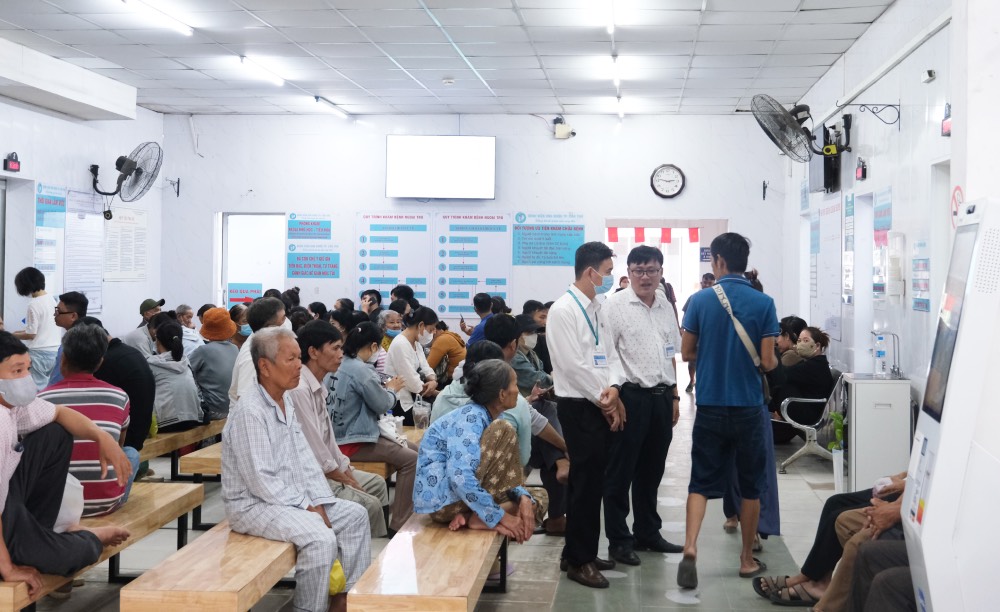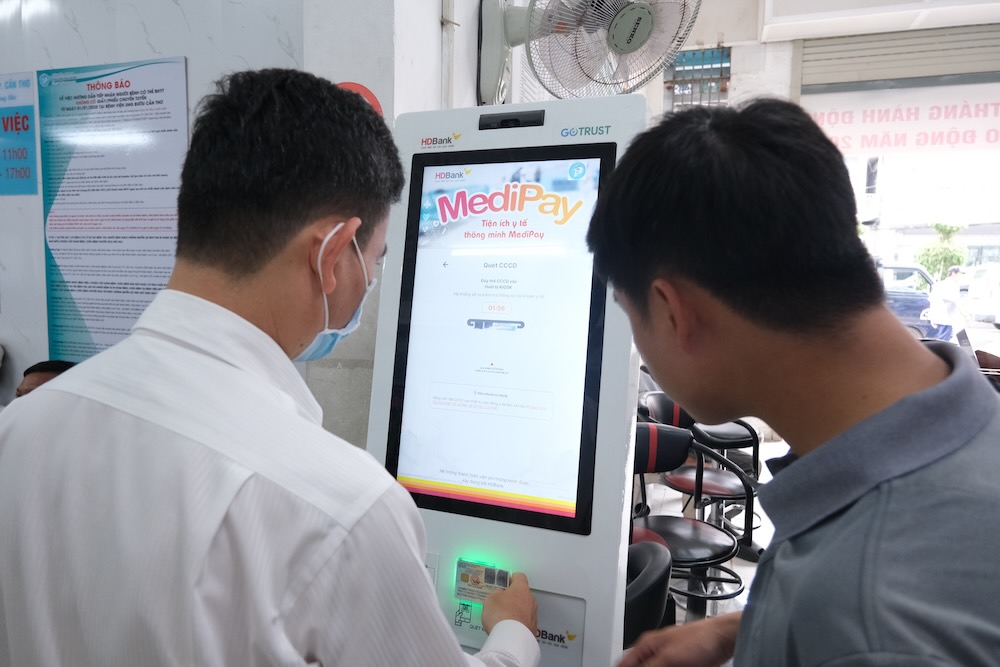Step by step to resolve
The implementation of the Electronic Medical Record is considered one of the leading important pillars of the modern health sector in Can Tho City.
Associate Professor, Dr. Hoang Quoc Cuong - Director of the Department of Health - acknowledged that the implementation of the Electronic Medical Journal not only replaces traditional paper records, but also aims for the goal of " documentsless healthcare", improving the quality of medical examination and treatment, and reducing administrative procedures. All of these also help support management and operation and contribute to connecting and sharing medical data with national systems. This is a strategic step towards building a smart hospital model" - Mr. Cuong said.

To date, 100% of medical facilities with beds in Can Tho City (including 61/61 Hospitals and Medical Centers, including public, private and central hospitals) have applied the Electronic Medical Record.
At Can Tho City Oncology Hospital, Master of Doctor Huynh Minh Thien, Head of the General Planning Department of the Hospital, expressed that to achieve the current excellent results, it is a process of effort and removal of specific difficulties and obstacles.

In reality, the majority of seriously ill patients coming to the hospital for examination and treatment often have difficult economic circumstances and limited access to technology. With the number of patients ranging from 500 - 600 people/day, the pressure of input and operation at the hospital is very high.
Mr. Nguyen Phuoc Tai, the Hospital's Information Technology Officer, shared: "We have arranged a Smart Kiosk with a guidance department for people to register for medical examination and treatment, but so far the number of registrations has not been as expected".

Therefore, up to now, although medical staff have mastered the operation of the tool, they still face overload of digital health services for patients such as registration for examination, payment, etc.
Many solutions
Currently, Can Tho City Oncology Hospital is still implementing two parallel forms: electronic medical records that have just been recorded in documents, that is, the handwriting stage has been removed. However, Dr. Thien believes that completely removing paperwork from 2026 is not a distant goal.
"We determine that electronic medical records will bring outstanding efficiency. Normally, a cancer patient's documents will range from 3 - 5 kg. With the number of patients in the Mekong Delta region, the number of document archives in hospitals is huge. The transition will completely solve this problem, not only serving patients better and managing the hospital more effectively, but also aiming to save resources and protect the environment" - Head of the General Planning Department analyzed.

That is also the reason why the hospital is making efforts to find solutions to complete the goal of implementing official electronic medical records from next year. According to Mr. Thien, first of all, the hospital continues to improve internal capacity, continue to improve the capacity of medical staff in using and optimizing the Electronic Medical Record system.
"We have gradually helped people with serious illnesses access modern technology, in the context of the whole country moving towards smart healthcare. On the hospital side, we strengthen digital transformation propaganda to patients, encourage online registration or at the Smart Kiosk under the guidance of the social work department. In particular, the hospital recommends cashless payment to minimize patient time" - Doctor Thien said.











